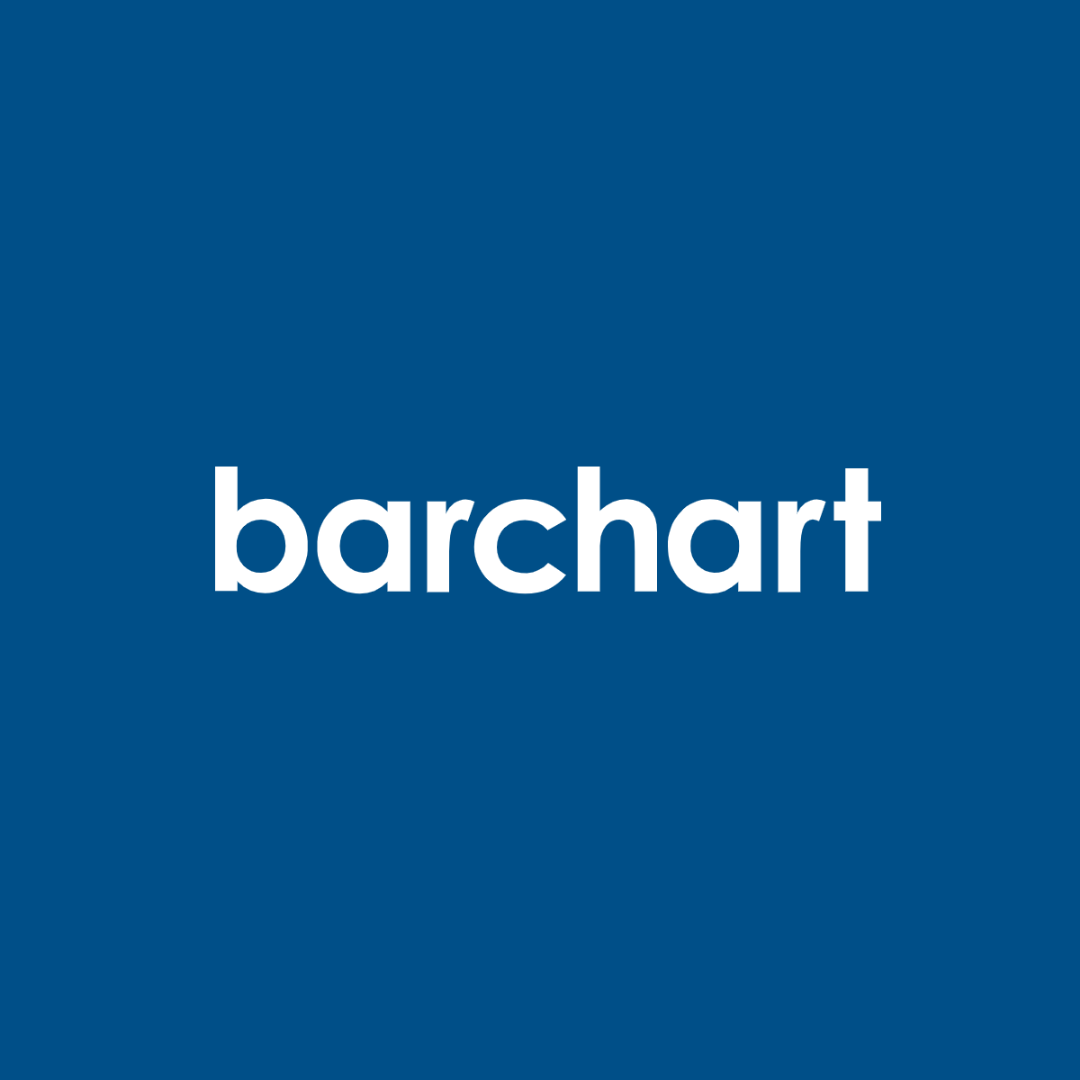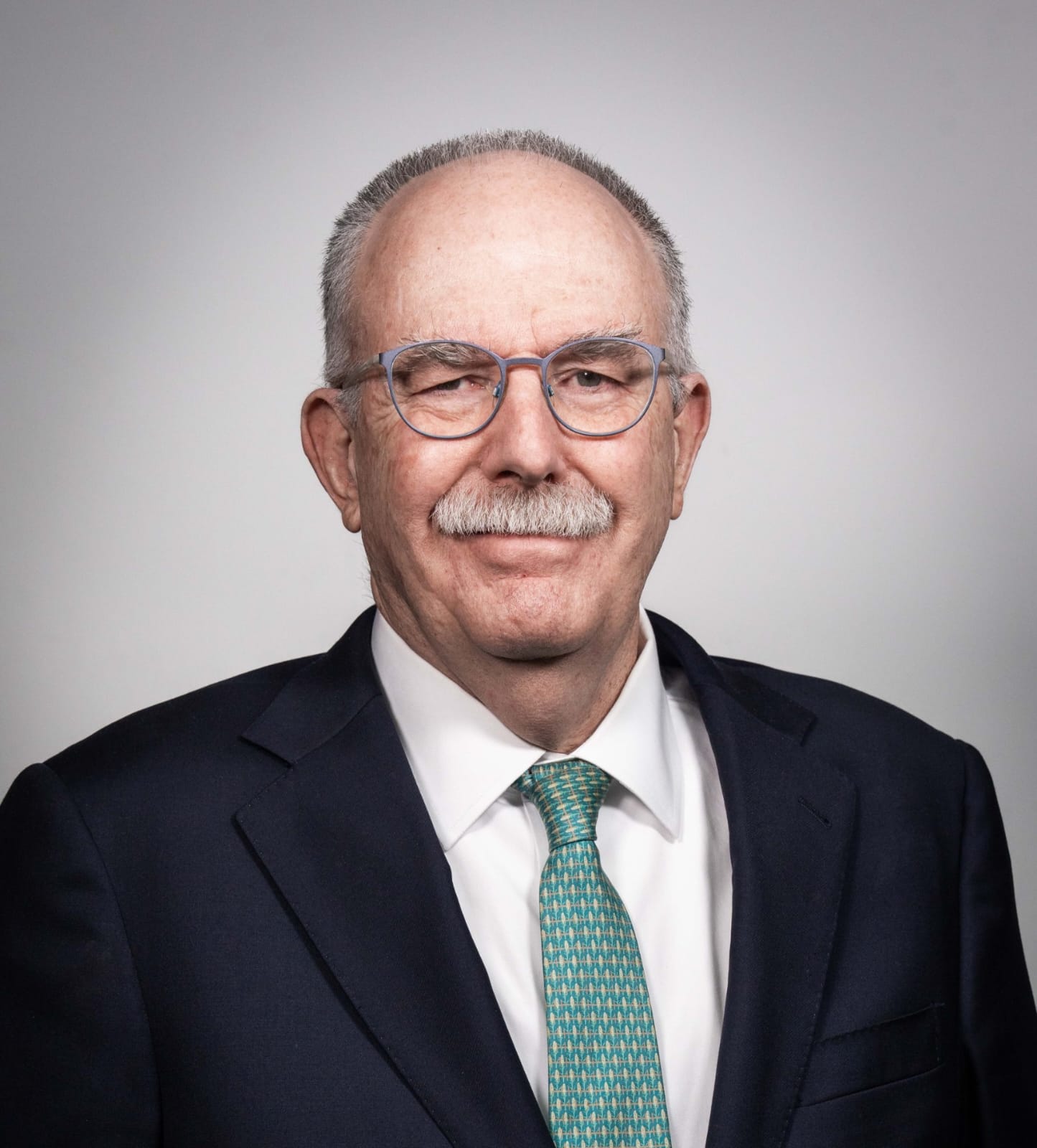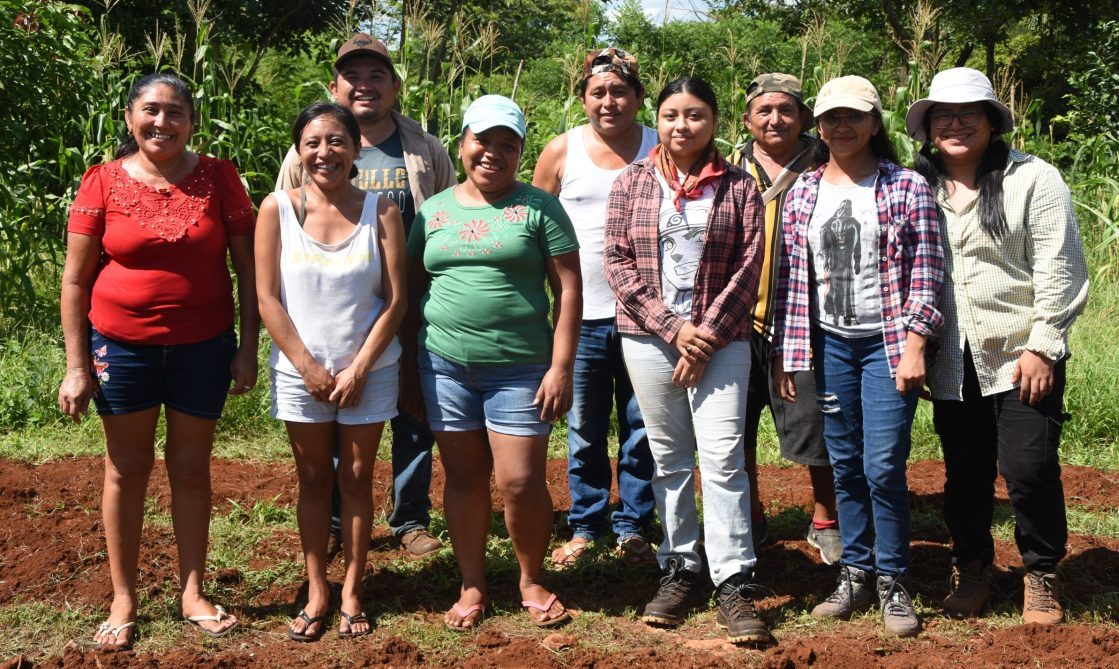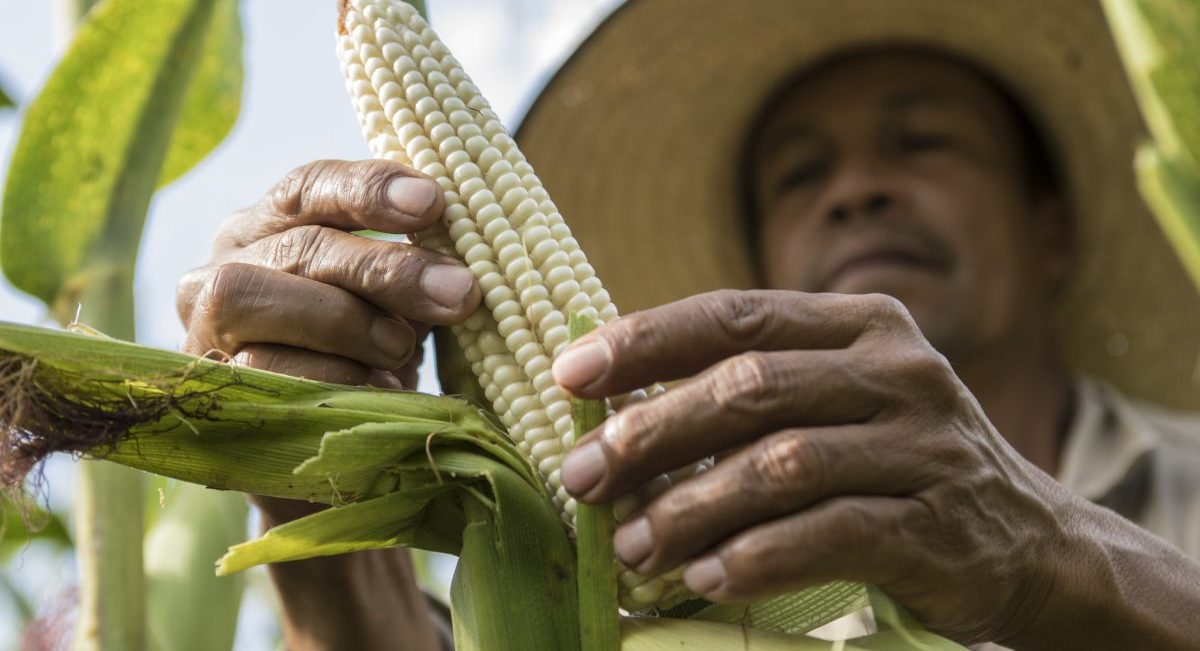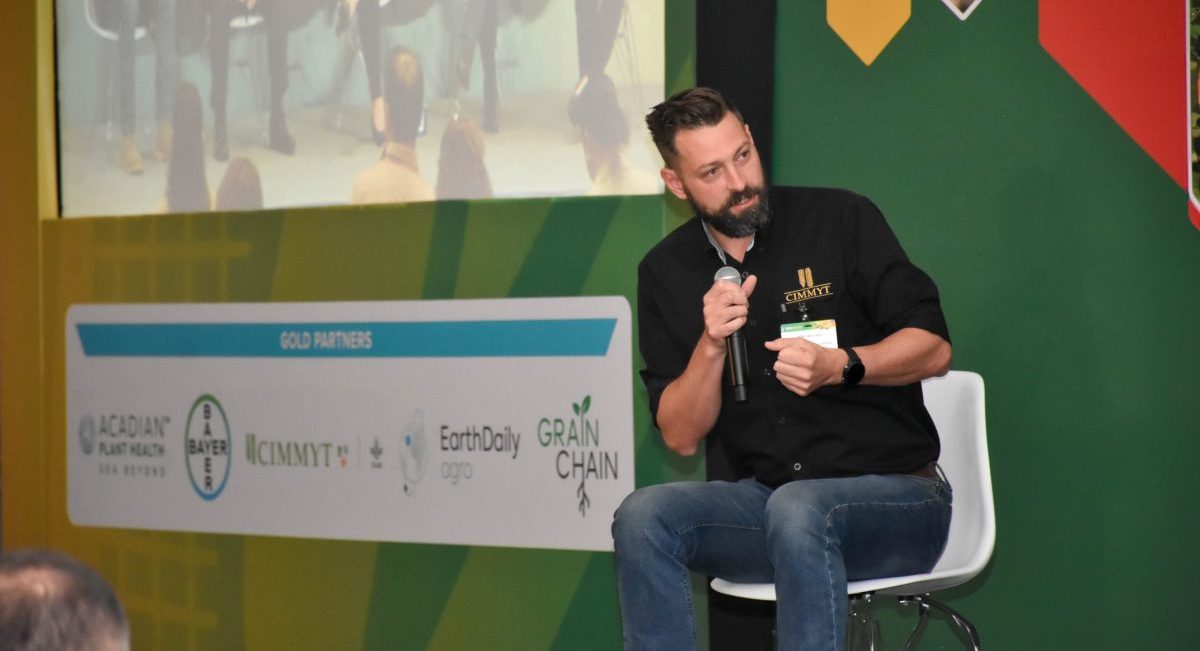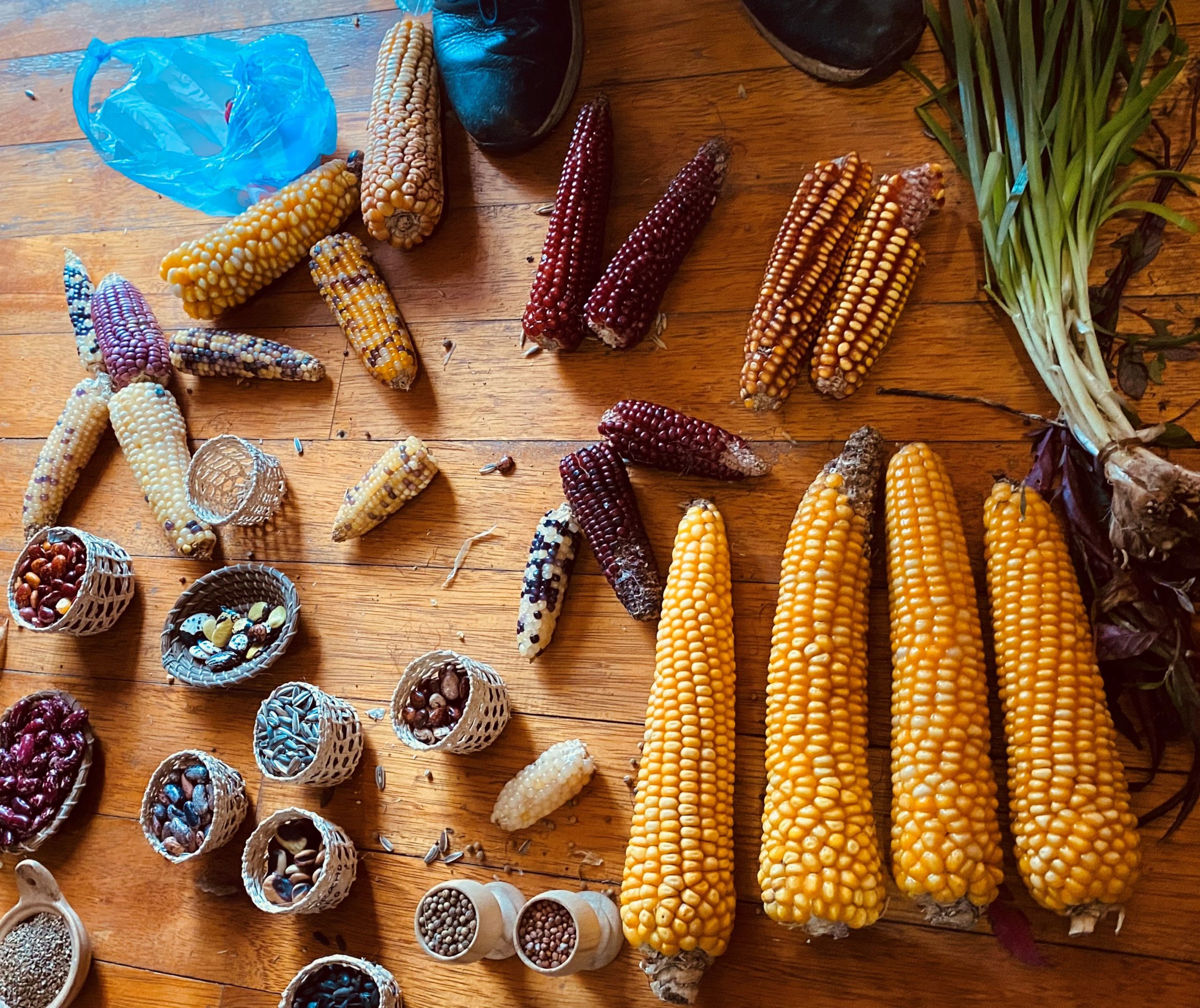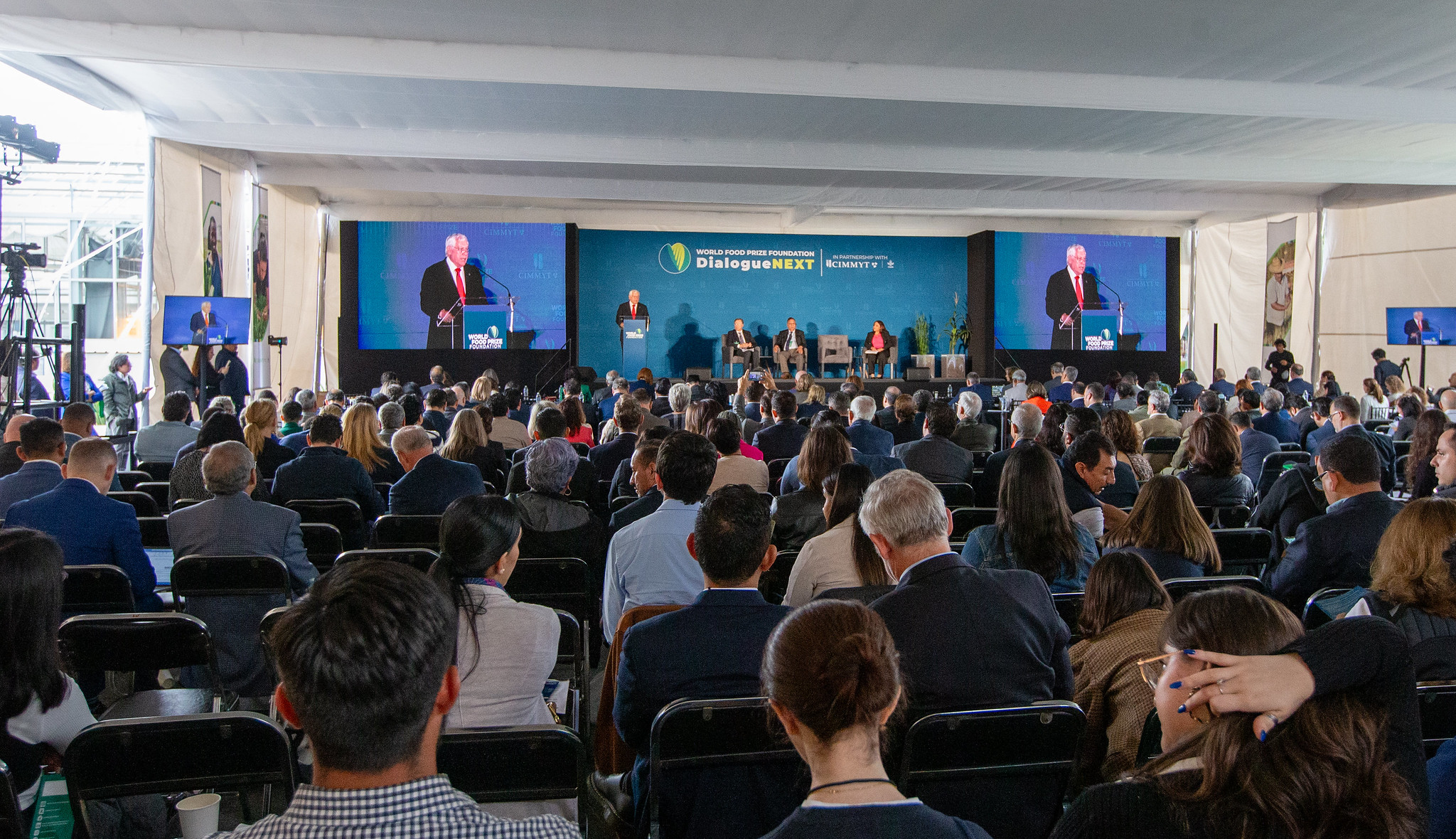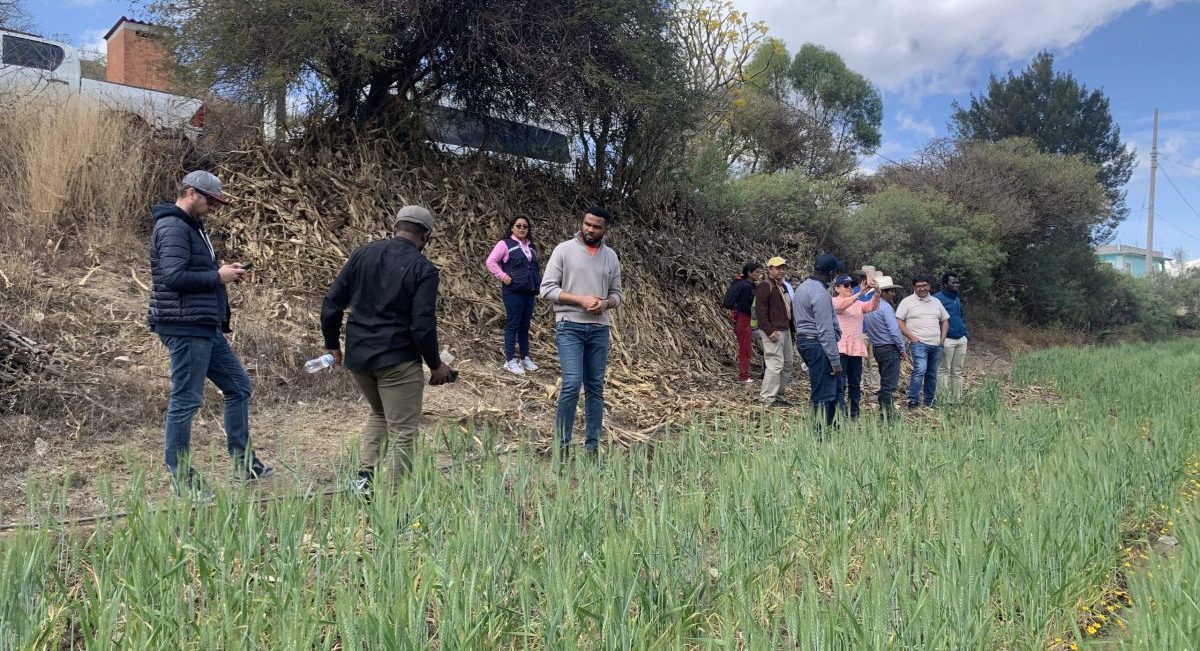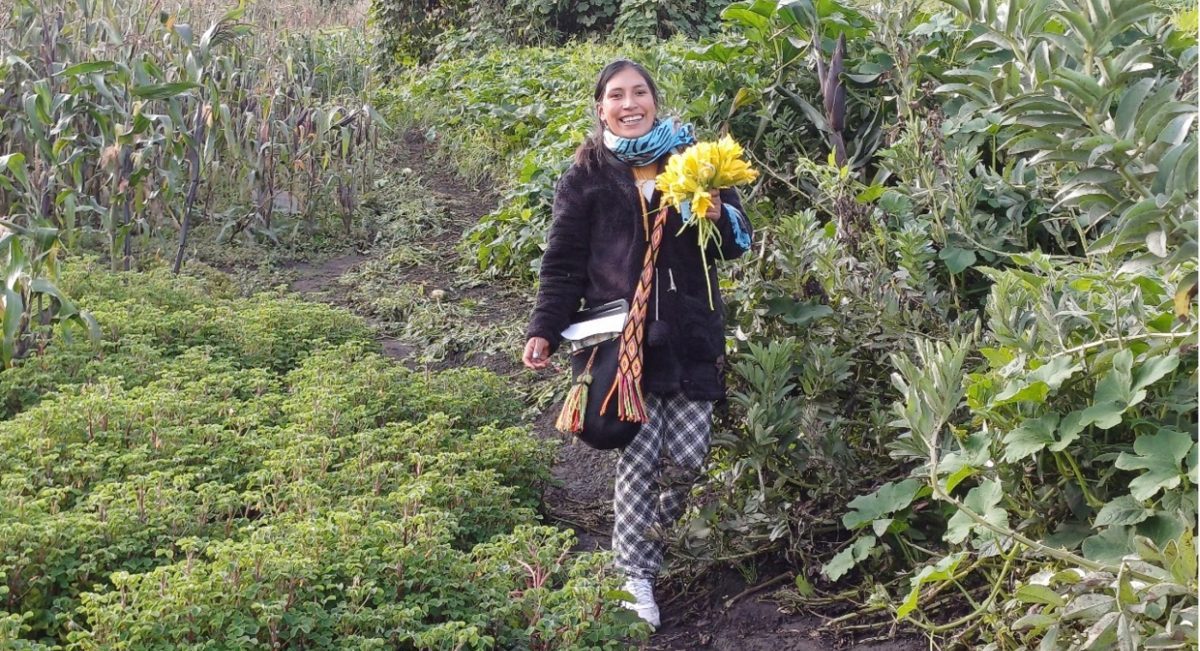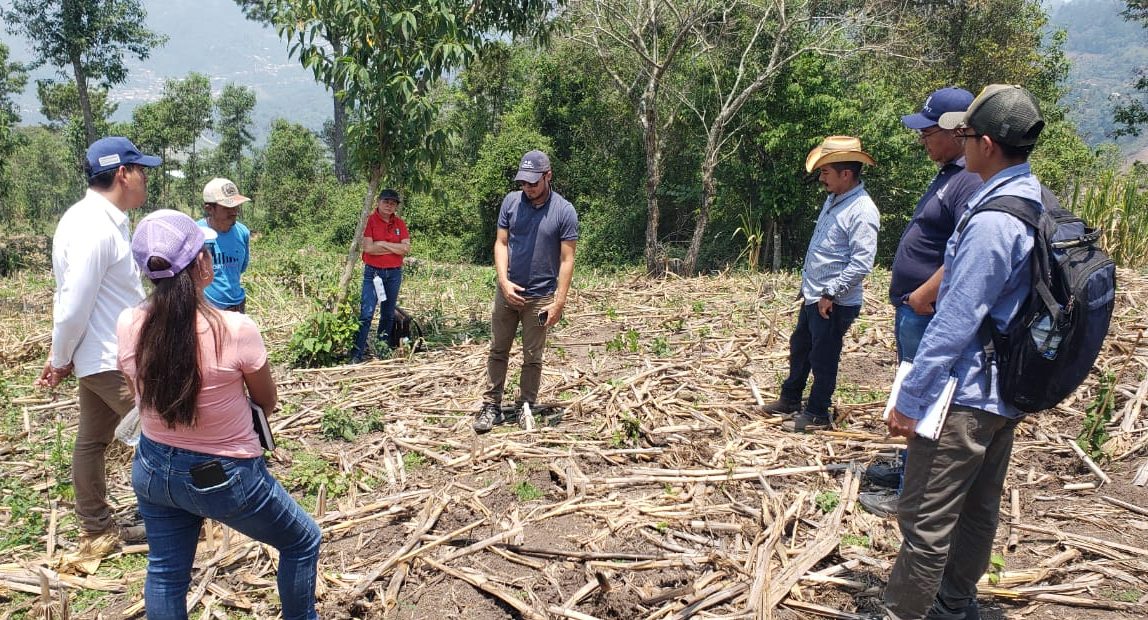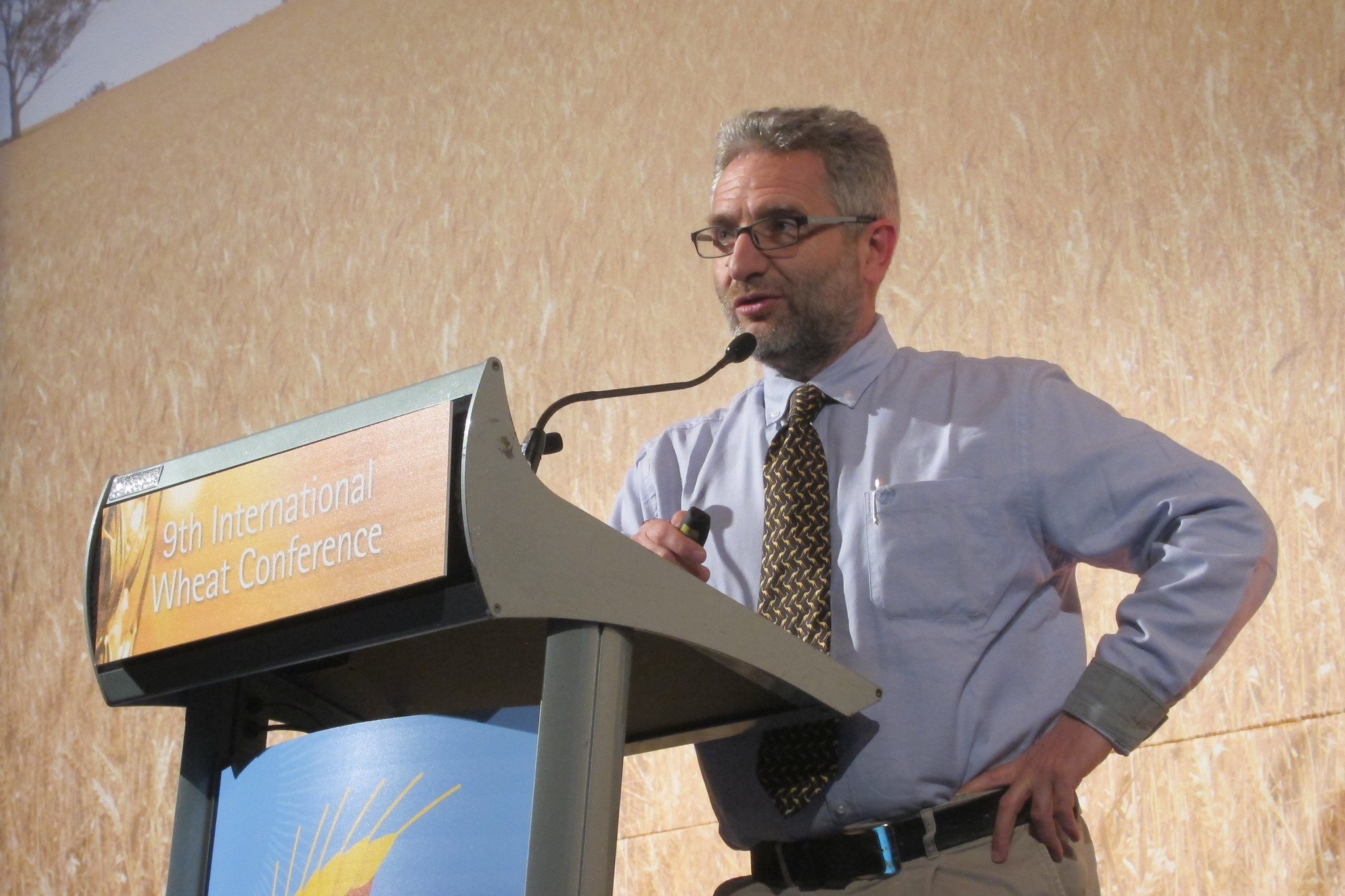Americas
CIMMYT has several offices in the Americas, including global headquarters in Mexico and a regional office in Colombia. Activities are supported by an additional 140 hectares of stations in diverse agro-ecological zones of Mexico. CIMMYT’s genebank in Mexico stores 27,000 maize and 170,000 wheat seed collections – key to preserving the crop genetic diversity of the region. CIMMYT projects range from developing nutritionally enhanced maize to mapping regional climate change hot spots in Central America. The comprehensive MasAgro project aims to increase wheat production in Mexico by 9 million tons and maize production by 350,000 tons by 2030. CIMMYT promotes regional collaboration and facilitates capacity building for scientists, researchers and technicians.
Tecnologico De Monterrey Develops Nutraceutical Corn to Address the Global Food Crisis and Improve Health
 Innovations
Innovations
Source: barchart ()
Tecnologico de Monterrey and CIMMYT developed nutraceutical corn to enhance nutrition and advance food security
The other revolution that was born in Mexico: The legacy of sustainable transformation and its new roots
 Innovations
Innovations
Mexico is driving agricultural transformation by integrating sustainable practices such as regenerative agriculture, agroecology, integrated fertility and efficient mechanization. Through the Hub model developed by CIMMYT, it promotes innovation, food security and the well-being of producers
Sustainable Agri-Food Colombia: a boost for resilient agriculture
 Climate adaptation and mitigation
Climate adaptation and mitigation
A major project to transform agri-food systems is underway in Colombia; the participation of CGIAR research centers, such as CIMMYT and the Colombian Bioversity-CIAT Alliance is essential to the project’s goals
CIMMYT at the World Agri-Tech Innovation Summit 2024
 Poverty reduction, livelihoods and jobs
Poverty reduction, livelihoods and jobs
CIMMYT’s participation at the World Agri-Tech Innovation Summit showcased its leadership in advancing regenerative agriculture, open data, and global collaboration to address the climate crisis and transform the agri-food sector
Rockefeller Foundation Invests in Nature to Support Indigenous Peoples and Rainforest Communities at COP29
 Climate adaptation and mitigation
Climate adaptation and mitigation
Source: AP News ()
The Rockefeller Foundation’s grant to CIMMYT supports regenerative agricultural research in Mexico, advancing sustainable solutions for food security, climate resilience, and biodiversity conservation
Climate Hits Barley, World Bank Boosts Gender Equality
 Climate adaptation and mitigation
Climate adaptation and mitigation
Source: Mexico Business News ()
CIMMYT and Heineken Mexico’s “Cultivando un México Mejor” program aims to combat climate change impacts on barley production through conservation agriculture, targeting 100% sustainable barley by 2030
Mexico sends seeds to the Svalbard Global Seed Vault
 Climate adaptation and mitigation
Climate adaptation and mitigation
A recent shipment of maize and wheat seeds aims to ensure that Mexico’s bio-cultural heritage is available for generations to come
U.S. Pledges $5M for Guatemala Food Security Initiative
 Climate adaptation and mitigation
Climate adaptation and mitigation
Source: The Mirage ()
A $5 million initiative under the Vision for Adapted Crops and Soils is advancing sustainable agriculture and food security in Guatemala by improving soil health, crop diversity, and climate resilience
Helping Colombia’s smallholder farmers to leverage and preserve maize diversity
 Climate adaptation and mitigation
Climate adaptation and mitigation
To enhance the food security of Colombian smallholder farmers, a group of CIMMYT specialists and local organizations are studying maize value chains in various regions of the country to establish effective strategies for the conservation and production of native maize, particularly to link farmers with niche markets
Enhancing the resilience of our farmers and our food systems: global collaboration at DialogueNEXT
 Capacity development
Capacity development
CIMMYT and the World Food Prize Foundation co-organized DialogueNEXT—Seeds of strength: Nurturing farmer resilience, held at CIMMYT headquarters in Mexico from 10 to 11 July 2024. The event brought together scientists, agribusiness leaders, farmers, and policymakers from over 200 organizations and 55 nations, to help shape global collaboration and strategies for sustainably producing nutritious food for all, within planetary boundaries.
There’s an increasing interest for hubs in Mexico
 Capacity development
Capacity development
Under the umbrella of CGIAR’s initiative in Excellence in Agronomy, worldwide experts are coming to Mexico to learn more about the hubs’ methodology and how its scientific results are reaching farmers.
Children, native maize, and gender perspectives
 Gender equality, youth and social inclusion
Gender equality, youth and social inclusion
In Colombia, sustainable agriculture specialists are developing participatory diagnostics that will pave the way for agricultural biodiversity conservation. Inclusive workshops for children providing childcare during workshops and training events have helped empower women by increasing their ability to participate.
Innovation hubs in western Honduras, cornerstones for agricultural sustainability
 Capacity development
Capacity development
By means of the regional initiative AgriLAC Resiliente, the InnovHub Occidente de Honduras technical team continues to promote sustainable agricultural practices in order to transform Honduran fields.
CIMMYT scientist recognized with research leader award
 Innovations
Innovations
The Research.com Plant Science and Agronomy in Mexico Leader Award is given to Matthew Reynolds for his frequently cited research papers on wheat crop science.
